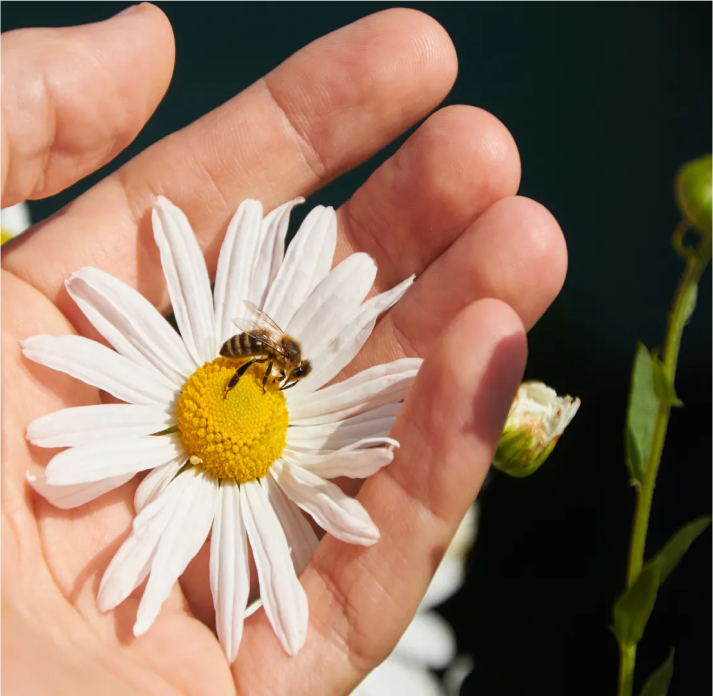Leone Alato and 3Bee: Element-E for biodiversity
Generali's agribusiness holding company and naturetech company announce first data from biodiversity monitoring pilot project
Loncon di Annone Veneto, Feb. 15, 2024 - First positive results for Element-E, the biodiversity monitoring project of the Winged Lion Group and naturetech 3Bee, launched just over a year ago at the three farms owned by Generali's agribusiness holding company in Portonovo (municipality of Medicina, Bologna), Spazzate (municipality of Conselice, Ravenna) and Costa Arènte (municipality of Grezzana, Verona).
The objective of the project is to measure, for the first time and in a scientifically precise and timely manner, the biodiversity of an area, so as to ensure the preservation of soils, the quality of production and the protection of the environment.
The activity was based on the innovative Element-E biodiversity monitoring protocol, developed by 3Bee and characterized specifically by the Flora and Spectrum technologies: the former allows, thanks to AI and satellite images, to map an area, estimate the potential biodiversity of the habitat and its suitability for pollinators; the latter, on the other hand, allows to capture the sound waves emitted by the pollinators present in an area, so as to assess their quantity and types.
The data that have emerged from the research so far are flattering. Indeed, the monitoring shows the quality of the three areas examined: the Flora technology showed that it was able to create conditions for pollinators, i.e., insects or other inanimate agents that operate pollination, at Sweeps up to three times higher than the control area, +285 percent, compared to surrounding land. Spectrum, on the other hand, confirmed the benefits of the regenerative practices adopted at Portonovo, +40% entomofauna abundance when applied compared to control areas; at Costa Arènte, the positive contribution of the presence of natural areas, whether forests or meadows with +100% entomofauna abundance, i.e., the set of insects in a given area, when applied compared to control areas was identified.
The uniqueness of the three estates studied lies in the activities carried out there. At Portonovo, regenerative agriculture is practiced with so-called cover crops (i.e., crops used to leave farmland uncovered, for example, during winter, and which provide agroecological services such as soil protection, increased fertility and more) and carbon farming (literally “carbon cultivation”: an innovative way of farming to sequester carbon in the soil so that it does not end up in the atmosphere). In Spazzate there is a true oasis of biodiversity immersed in intensively farmed land. At Costa Arènte there is a sustainable vineyard, with controlled inter-row grassing and with cruciferous and leguminous plants, set in a very large wooded area.
Igor Boccardo, CEO of Leone Alato, says, “The results obtained after a year of experimentation have been very positive. In fact, the combination of traditional techniques with the most modern technologies has allowed us to drive a significant growth of pollinators within the monitored farmlands. The goal in the medium term is to extend the monitoring to other sites starting in 2024, to carry out a broader and more systemic assessment in order to define a biodiversity enhancement and regeneration strategy for the coming years. As Winged Lion we want to be a reference point in the field of biodiversity, enhancing research, quality productions and respect for the environment.”
Niccolò Calandri, CEO of 3Bee, says, “Faced with the challenge of soil degradation, which according to the European Union affects up to 73 percent of agricultural land, the importance of innovative solutions is more evident than ever. The collaboration between Winged Lion and 3Bee is a significant step in this direction. At 3Bee, we are committed to developing technologies to protect biodiversity, a key element of sustainable agriculture. This partnership is a concrete example of how agriculture can innovate by embracing practices that respect and enrich the environment. An approach that lays the groundwork for agricultural production that is more resilient and in harmony with nature.”
The integration of advanced remote monitoring technologies with innovative agricultural practices to promote biodiversity and healthy agricultural ecosystems was the key element in achieving these results.
By partnering with 3Bee and using the innovative Element-E monitoring protocol, Leone Alato demonstrates that it is possible to generate real and measurable impact through the development of a major regenerative agriculture effort in Italy.
3BEE
3Bee is Italy's leading naturetech company in the development of technologies for biodiversity monitoring and protection, recognized by the EU as the development partner reality of the first certified biodiversity credits. Starting with the bee, a fundamental bioindicator, 3Bee collects and interprets environmental data through innovative proprietary systems to monitor the health of pollinators and their connection to ecosystems, offering assessment, monitoring, regeneration and training solutions for biodiversity. To date, 3Bee has implemented regenerative projects alongside more than 500 companies in 10 countries that have chosen to make a concrete contribution to biodiversity protection. In addition, 3Bee works with research centers, schools, farmers, growers and citizens to promote the importance of biodiversity conservation. Since its inception, 3Bee has developed a network of more than 3 thousand biodiversity farmers, installed more than 5 thousand IoT sensors and regenerated more than 40 thousand hectares.
